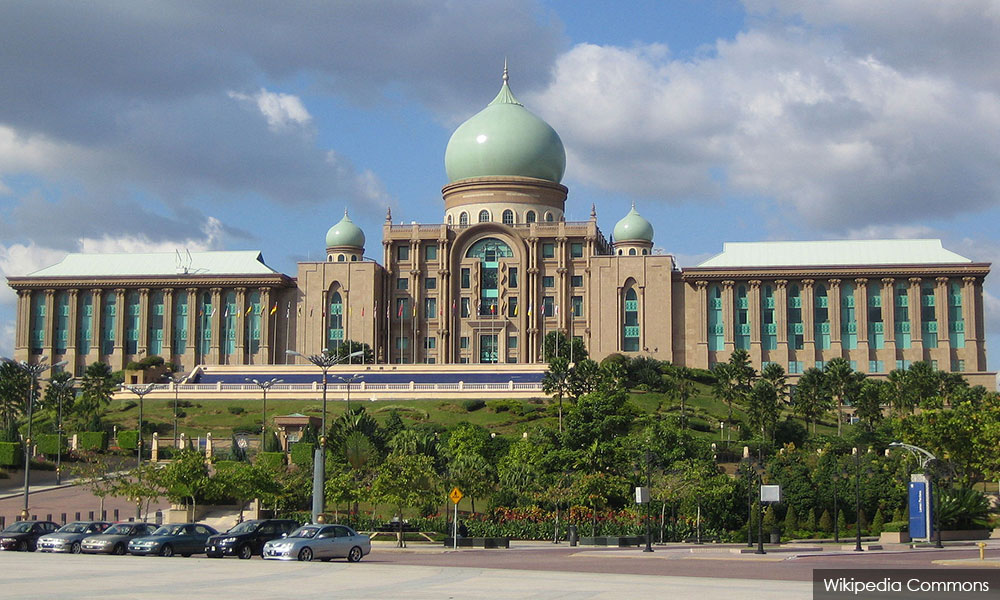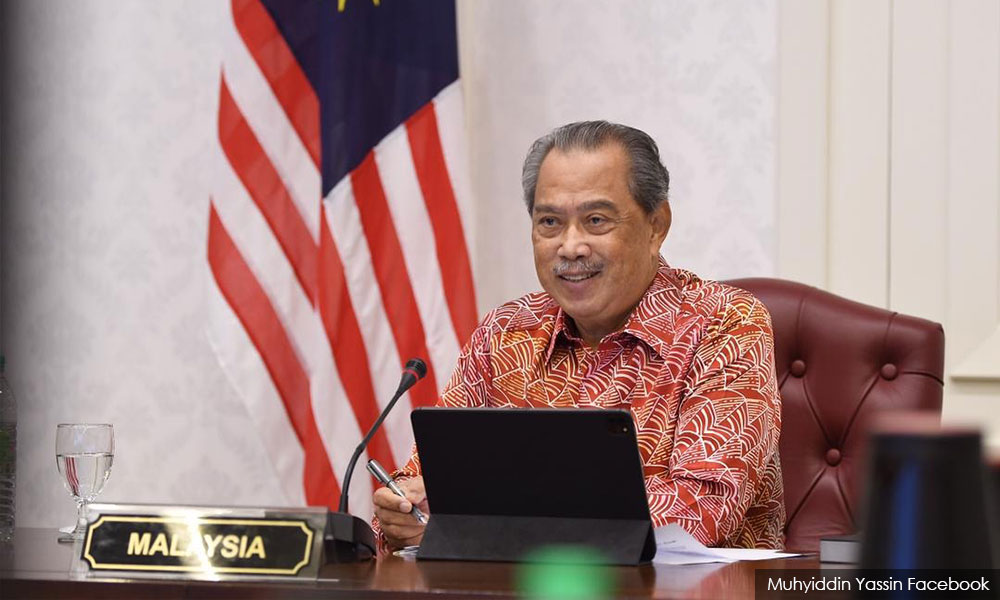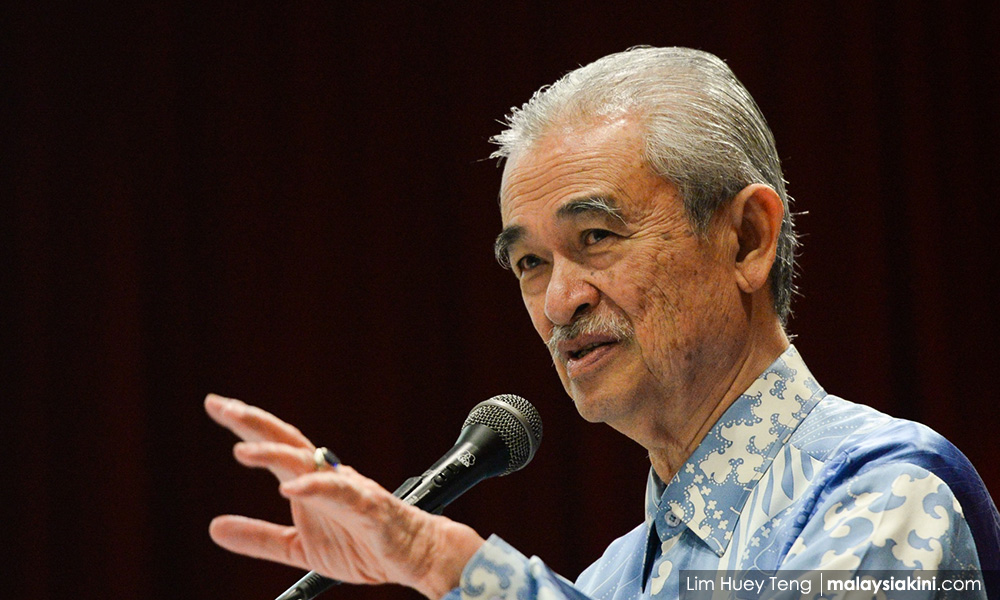Malaysia’s politics is entering uncharted waters. On the surface, the situation may appear to be the same – the government of the day is going about its business (some of the time) and those in power have turned a deaf ear to the concerns being raised from above and below, echoing the ho-hum reality of lockdown amidst a devastating pandemic.
Yet, over the last few months and epitomised most clearly in the ‘acknowledgment-without-action’ response (so far) to the 'ASAP' statements from political elites on the emergency and Parliament, the powers that be are deviating from established practices. This ongoing shift is not about the personalities or changes in power but rather how they are wrestling with staying in power.
Allow me to unpack this further.
A concept of political legitimacy – the right to rule – is at the core of normative and substantive discussions of politics. Often captured descriptively in its forms or with attention to the sources of legitimacy, many a scholar have espoused on the morality and obligations of those in power and those consenting to power.
The famous sociologist Max Weber is among those most known for his description of the different types of legitimacy. In 1918 he wrote: ‘People may have faith in a particular political or social order because it has been there for a long time (tradition), because they have faith in the rulers (charisma), or because they trust its legality—specifically the rationality of the rule of law (Weber 1990 [1918]).’
These types of legitimacy – traditional, charismatic and legal-rational – capture why the publics give their consent to those in power. They also relate closely to the different grounds where legitimacy might be founded – in cultural beliefs and loyalties, through good governance and performance, and the respect for established processes and procedures governing political life in the rule of law.
Authoritarian governments rely on governance and economic performance to sustain them, and when they lack this, as in the case in Myanmar today, they turn to coercion and violence. Democracies rely on elections, measures that ameliorate conflict and differences and provide channels for inclusion and representation. Those vested in the process, generally consent to it.
While admittedly this discussion oversimplifies complex debates, it sets the context for understanding the current shifts taking place with regard to legitimacy in Malaysia.
Malaysia’s political legitimacy pillars
Malaysia has its own unique views and practices regarding legitimacy. They differ as much as the scholars (and non-scholars) do in outlooks. I suggest that there are three pillars of legitimacy in Malaysia, closely parallel to the sources of legitimacy noted above.

For those that look to the first pillar of tradition, they focus on the significance of feudal loyalty to respected political traditional elites and the importance of protecting the position of the dominant political community, the Malays. Arguments that speak to whether a political party or coalition represents these institutions and interests have long been touted to legitimise power and claims for power.
For example, even as Umno lost ground politically in its own base, it continued to hold onto the view that it was the party that represented the Malay community, largely on grounds of its composition and historical role as opposed to its contemporary policies. Others, such as PAS, appeal to traditional legitimacy in their focus on their interpretation of faith.
An alternative view of legitimacy in Malaysia focuses on the second pillar of performance/governance. Malaysia has been blessed with resources and acumen that have allowed it to prosper. While most would argue that it has not prospered to its potential, and even more would argue that the system and its practices and mindsets are in need of urgent reforms, few would also dismiss that compared to many other countries, Malaysia has done well.
The economic growth figures through the 1990s are testimony to this. It is largely in the last two decades where the gap in unrealised potential has become starkly clear and the country’s comparative advantage has declined. Corruption, resistance to reform and the costs of holding onto power with mistaken perceptions of entitlement by those in power have taken (and are taking) a serious toll.
With the prominence of hierarchical leadership, governance and performance have been closely aligned with individual leaders, such as Dr Mahathir Mohamad or Najib Abdul Razak. Power is seen as personal in Malaysia; it is believed that individuals at the top determine the type of governance.
As such, the Perikatan Nasional coalition is Muhyiddin (now Maihaiddin) Yassin’s government. While often overstated (as policy implementation extends far beyond one person), this link between persona and power manifests itself in assessments of government performance.

The third pillar of legitimacy looks to Malaysia’s constitution. Here, the centrality of free and fair elections, Parliament, competition, protection of rights and respect for the rule of law take centre stage. As a democracy (in progress like the rest of the world), Malaysia has relied on its founding fathers for guidance, a strong foundation for its democratic roots.
When these have failed, the Malaysian public has provided reminders. Those that have veered too far from this constitutional core provoked reactions, with the Bersih movement’s call for electoral fairness and reform since 2007 as an example.
Harapan’s legitimacy imbalance
In practice, these three dimensions have melded together – Malay traditional political institutions, economic performance/governance and the constitution.
Umno, at its height in power tapped all three, a factor that contributed to its longevity in office.
Pakatan Harapan appealed to its democratic legitimacy based on winning an election, procedures laid out in Malaysia’s constitution.
The 2018 election mandate from the public was clear, a change was needed in governance. Harapan struggled to deliver for a variety of reasons that will continue to be debated.
One of the most effective factors that undercut this coalition, however, was the legitimacy challenge tied to ethnic politics, whether or not Harapan represented the dominant community, the traditional pillar of legitimacy.

Both PAS and Umno effectively claimed that Harapan did not represent nor protect Malay institutions.
Harapan’s imbalance across the three pillars of legitimacy opened up the way for a new coalition.
PN’s own legitimacy imbalance
Vested with ambition, personal interest, and personality battles of their own from the past, PN took hold of the reins of power. While elected to office and within the framework of coalition politics, PN has wrestled with complying with expected parliamentary tests of its majority. It has lacked democratic legitimacy.
With Umno leaders distracted in playing its own with-them-and-against-them politics and its leaders trying to settle their personal fortunes – feeding the factionalism in a divided party – and with Harapan reeling from its own divisions and ambitions, careful control of the voting procedures in Parliament and rampant use of patronage, PN survived its first year.
Central to this was the ability of PN to appeal to other pillars of political legitimacy in Malaysia. The government was able to perform well in the first stages of the Covid-19 pandemic. The effectiveness of the first lockdown and initial expansion of social safety nets won over support.
Even though many did not vote for PN, the anger towards the Sheraton Move dissipated somewhat (for some), notably in the urban areas. There was redemption among those who were kicked out of the office and a willingness to give a chance among many who were disappointed with Harapan. These sentiments were short-lived as double standards, a declining economy, an unwillingness to expand the social safety nets amidst a mismanaged health crisis undercut PN’s support.

Rather than use the time after the first lockdown to deepen trust and strengthen health systems, the PN government allowed complacency to take hold. They did not seize the opportunity to use the crisis for reforms. Instead, they returned to practices that the majority of Malaysians rejected. Anger and frustrations have been openly expressed.
Throughout PN’s tenure to date, it was the traditional pillar that was essential for the coalition’s legitimacy and political survival. PN was an ‘all Malay’ government portrayed as protecting these interests and institutions with the support from traditional political elites (even though its political numbers relied heavily on support from its Borneo allies).
Even as anger persisted among those who felt democracy was ‘betrayed’ and ‘stolen’ as governance differed from the reform and inclusion mandate of 2018 and performance lagged, the ties to traditional legitimacy shored up the government.
This past week this has changed openly. Royal elites have called to strengthen the democratic legitimacy of the government with Parliament. These have been accompanied by quiet requests to strengthen performance. And equally important, there has been a distancing from the intertwining of PN with traditional political institutions – a modest but important shift.
The traditional foundation that the government has relied on for its political legitimacy has been shaken. Failures in governance and performance have contributed to this shift.
Lessons from political history
Malaysia has comparatively little experience with transitions of power. Power at the national level has changed governing coalitions twice. Most of the transitions have been changes in leadership. It is not clear how and if there will be a transition of power soon.
Muhyiddin’s leadership has been damaged, but, like others before him, he holds incumbent power in a highly centralised system that gives him considerable powers. Given his acumen in staying in power in difficult circumstances so far, many continue to bet on him.

The political changes of 2018 through an election and 2020 through a coalition offer lessons about transitions. While many on different sides were unhappy (or happy), they occurred through the established democratic practices, the rule of law and relied on multiple dimensions of legitimacy.
Those that left office also provide insights. As uncalled-for rumours have circulated about former prime minister Abdullah Ahmad Badawi, his leadership offers the lesson of a graceful exit that left a legacy for strengthening democracy in Malaysia, and arguably a stronger country.
Abdullah understood in his wisdom the need for broad-based legitimacy for effective governance, and that erosion of legitimacy requires acceptance rather than denial. This need for broad-based legitimacy is more urgent than ever as Malaysia faces the havoc of the Covid pandemic.
Malaysia, however, also has a long tradition of those holding onto power. There are always interests beyond those at the top interested in keeping those in power in power.
Yet here too history holds another lesson: in holding onto power, there have been costs to democratic practices, division in the society and a weakening of governance. Every time a leader stayed too long, there were costs – Najib post-1MDB is illustrative.
Events will unfold slowly and quickly as they often do in Malaysia. Yet with the erosion of legitimacy occurring across different pillars, it is indeed a pivotal and uneasy political time. Arguably, it is not just an ongoing constitutional crisis but a broader legitimacy crisis evolving. - Mkini
BRIDGET WELSH is a senior research associate at the Hu Fu Centre for East Asia Democratic Studies and a senior associate fellow of The Habibie Centre. She currently is an honorary research associate of the University of Nottingham, Malaysia's Asia Research Institute (Unari) based in Kuala Lumpur. She tweets at @dririshsea.
The views expressed here are those of the author/contributor and do not necessarily represent the views of MMKtT.




No comments:
Post a Comment
Note: Only a member of this blog may post a comment.